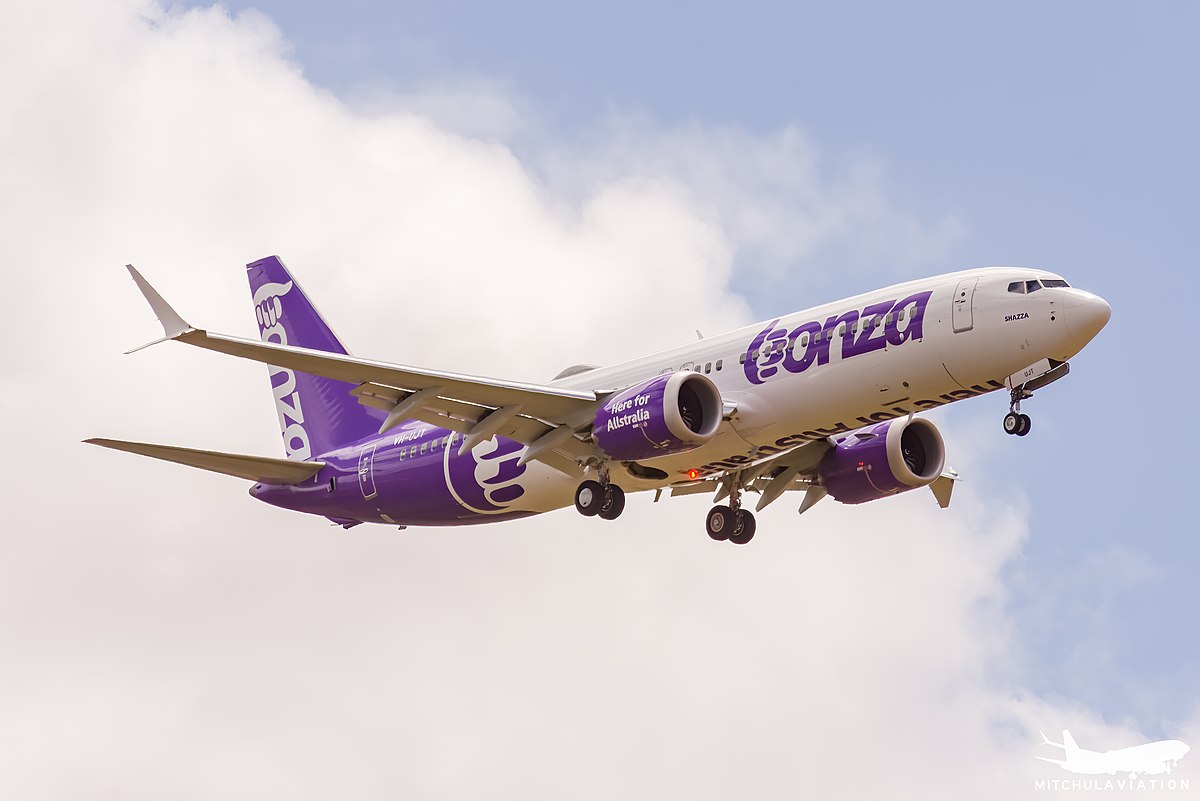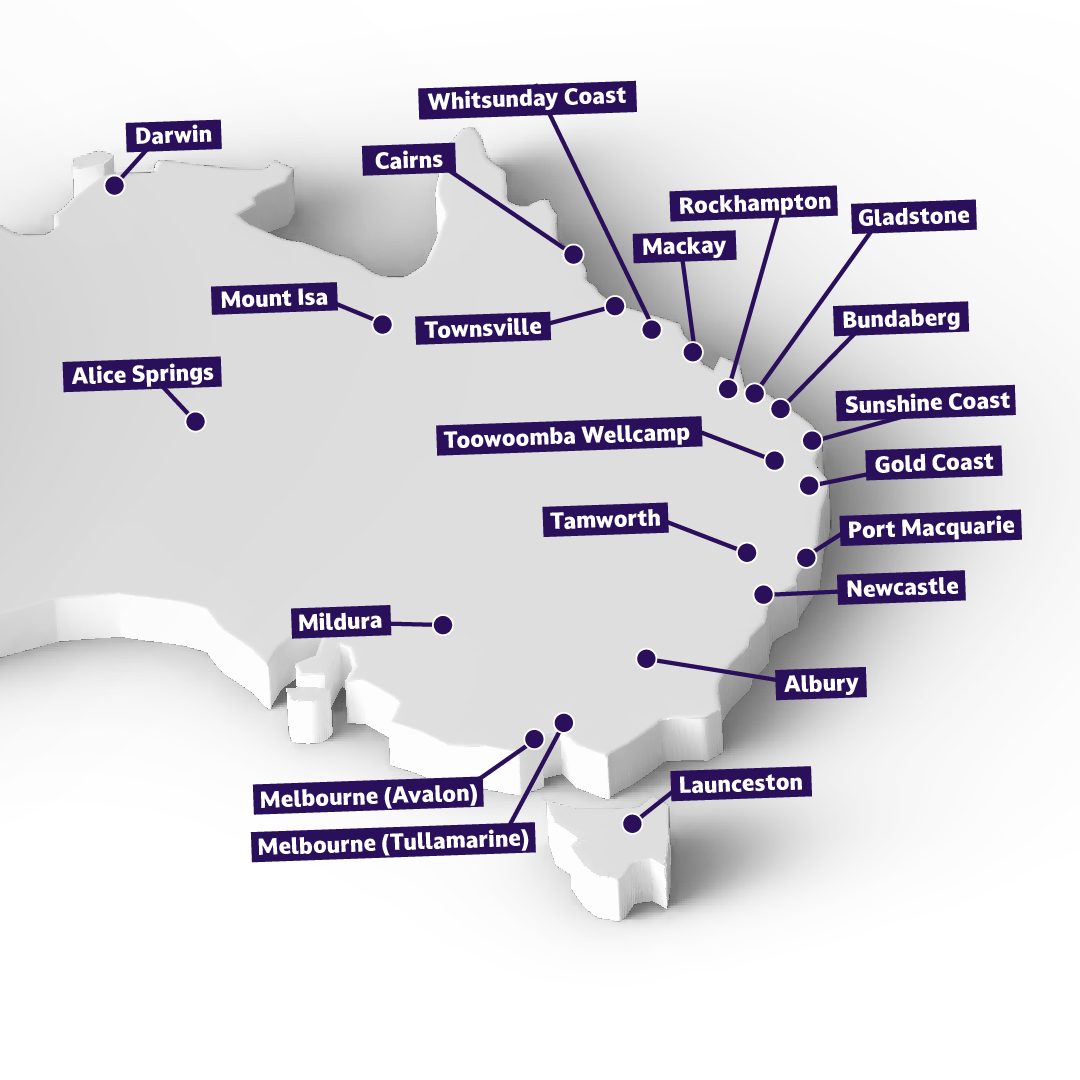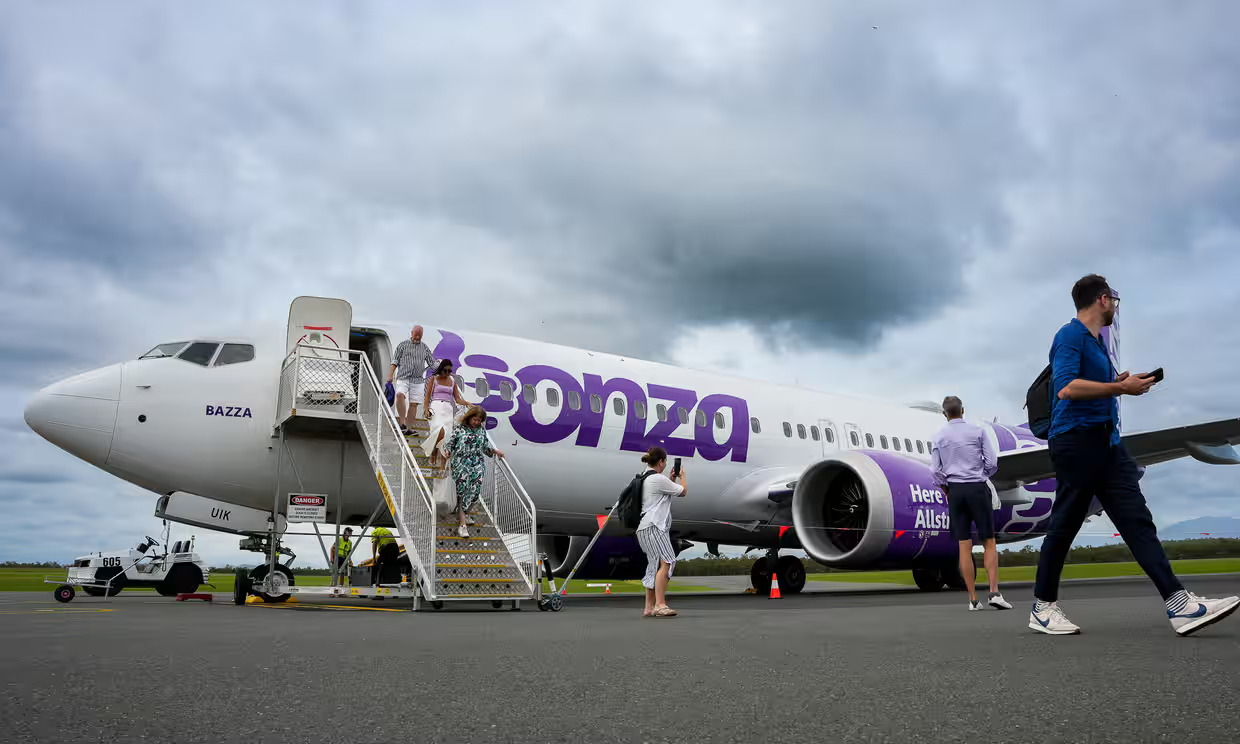
A Boeing 737-MAX 8 (VH-UJT) operated by Bonza Aviation landing at Avalon Airport in Melbourne.
In a dramatic turn of events for the Australian aviation sector, Bonza, a budget airline that once promised to revolutionize low-cost travel, has officially canceled all flights and entered voluntary administration. The abrupt halt to operations has left thousands of passengers stranded and hundreds of employees without jobs. The collapse marks a significant setback in the region’s competitive airline industry, which had high hopes for Bonza’s innovative approach.
How Bonza’s lofty ambitions came down to its knees?
On April 30, 2024, Bonza announced the cancellation of all scheduled flights, citing insuperable financial difficulties and an inability to secure the necessary funding to sustain operations. Unpaid debts of more than $115 million led its aircraft lessor, AIP Capital, to attempt to retrieve its fleet. Following the event, Bonza entered voluntary administration and appointed accounting firm Hall Chadwick at the end of April. The announcement was a shock to many, as the airline had only recently launched with ambitious plans to offer affordable flights across Australia’s lesser-served routes; the unserved and the underserved routes.

The routes Bonza used to operate before its closure.
The situation worsened when no viable rescue bid emerged, leading to the termination of hundreds of staff. Bonza’s administration revealed that, despite exhaustive efforts to attract investors or buyers, none were willing to commit to the struggling airline. The administrator confirmed that no bidding offers were received until the deadline on Friday, June 7, although Hall Chadwick had previously said it was speaking to around 20 parties, with six “very interested” in buying Bonza and its valuable AOC. The lack of interest from potential buyers underscores the challenging landscape of the aviation industry, where even innovative concepts must contend with high operational risks and thin profit margins.
The airline’s entry into administration was confirmed in early May 2024, sparking widespread commentary on the viability of budget airlines in Australia. Critics argue that Bonza’s rapid ascent and equally swift downfall highlight systemic issues within the industry, including fierce competition from established carriers and volatile market conditions. Additionally, the airline’s focus on less-traveled routes may have failed to generate the necessary revenue to sustain its business model.
Hundreds of employees sacked, and inconvenience to passengers
Passengers who had booked flights with Bonza now face significant inconveniences. Many are left scrambling for alternative travel arrangements, while others are struggling to secure refunds. The airline’s sudden closure has also raised questions about consumer protection and the stability of emerging airlines. Travel industry experts suggest that regulatory reforms may be needed to better safeguard passengers in the event of airline collapses.

Bonza, the budget airline serving unpopular destinations in Australia
The impact on employees is equally dire. More than 300 employees, ranging from flight crews to administrative personnel, have been left jobless with little warning after they were not paid for more than two months. The sudden job losses add to the growing number of layoffs in the aviation sector, which has been under strain due to fluctuating demand and rising costs. For many, the promise of a new and dynamic workplace has ended in uncertainty and financial hardship.
Jetstar and Virgin have offered to prioritize hiring Bonza staff for all vacancies. Jetstar said on Tuesday that it had also extended its offer of free flights to affected Bonza customers until the end of this month.
What do the other operators need to learn from Bonza’s downfall?
Bonza’s failure to find a buyer or investor also casts a shadow over the future of budget airlines in Australia. The airline’s ambitious vision was to democratize air travel by making it more accessible to all Australians. However, the inability to secure a financial lifeline suggests that even well-intentioned ventures must navigate an extremely challenging economic environment.
In a nutshell, the collapse of Bonza serves as a cautionary tale for the aviation industry. While innovation and ambition are crucial for progress, they must be supported by robust financial planning and realistic market assessments. For the employees and passengers affected, the fallout from Bonza’s demise will be felt for some time. As the industry grapples with these lessons, it remains to be seen whether future entrants can succeed where Bonza failed.
